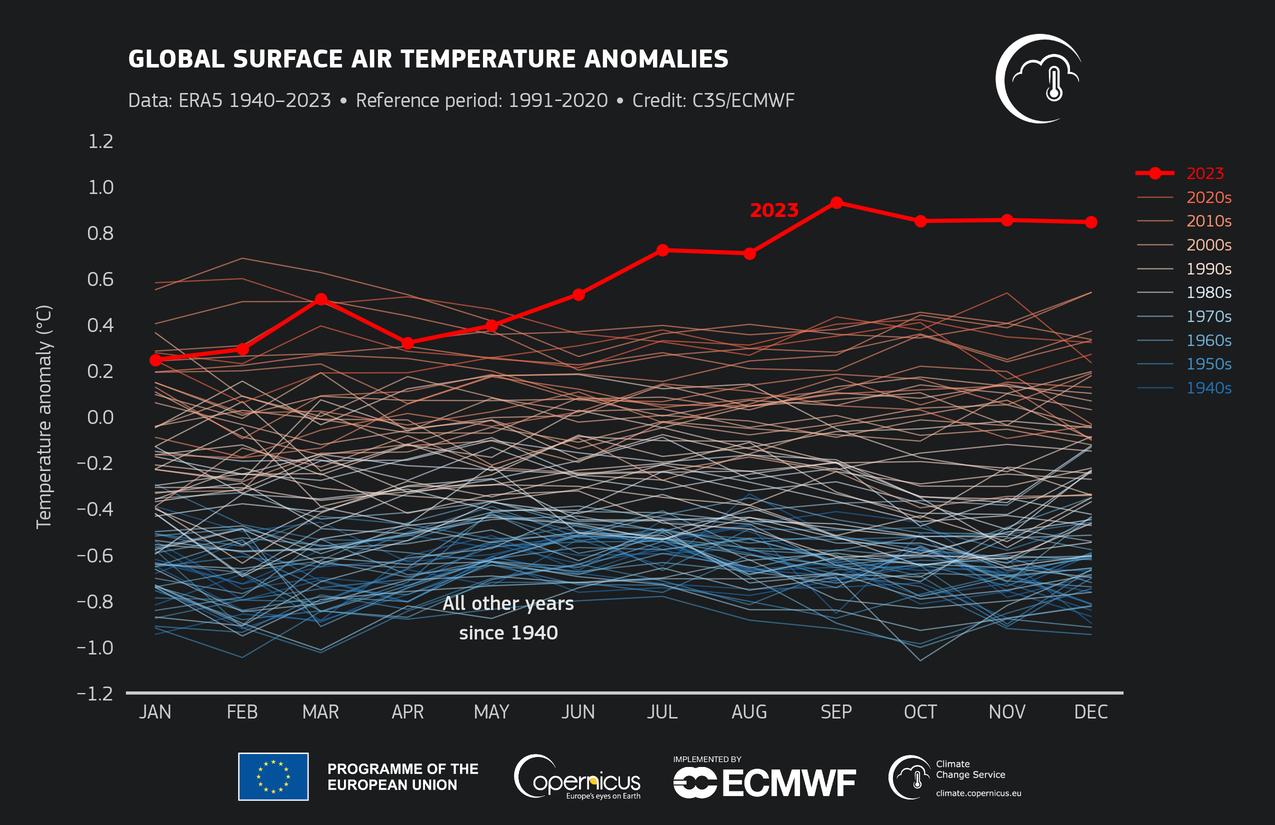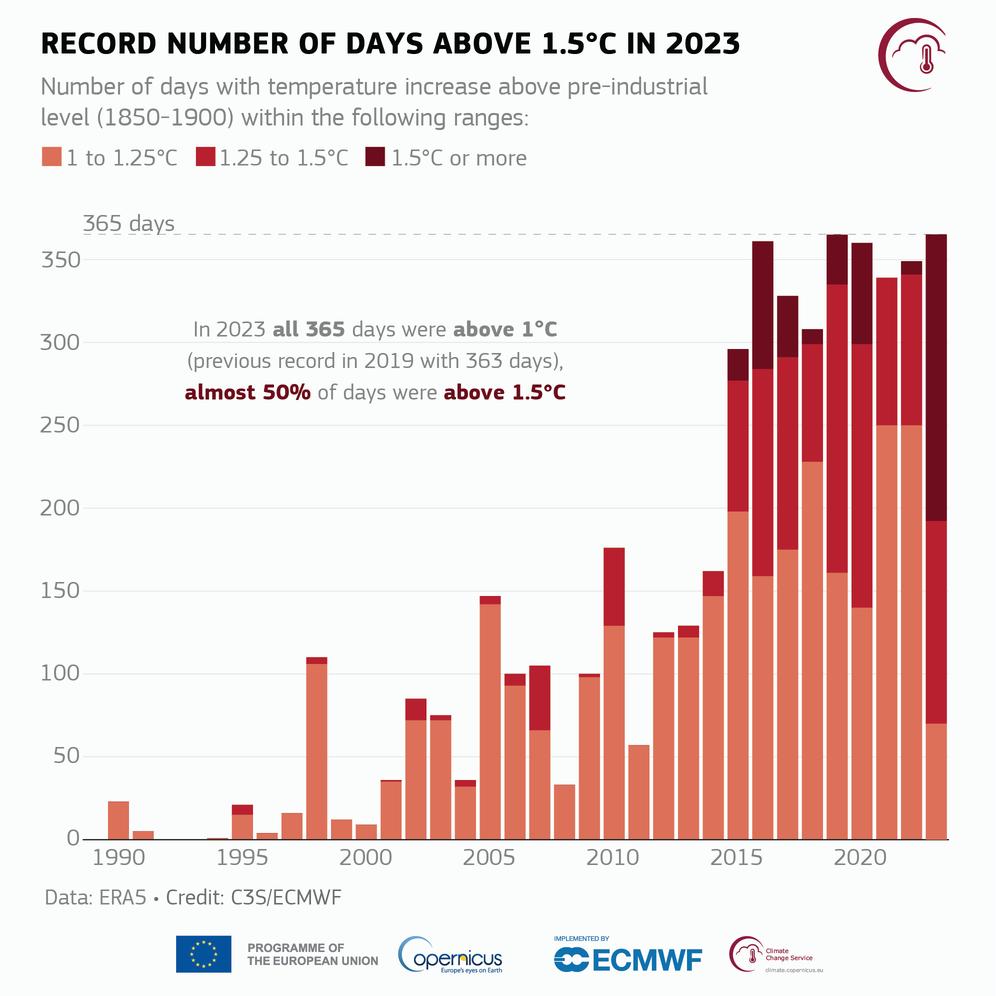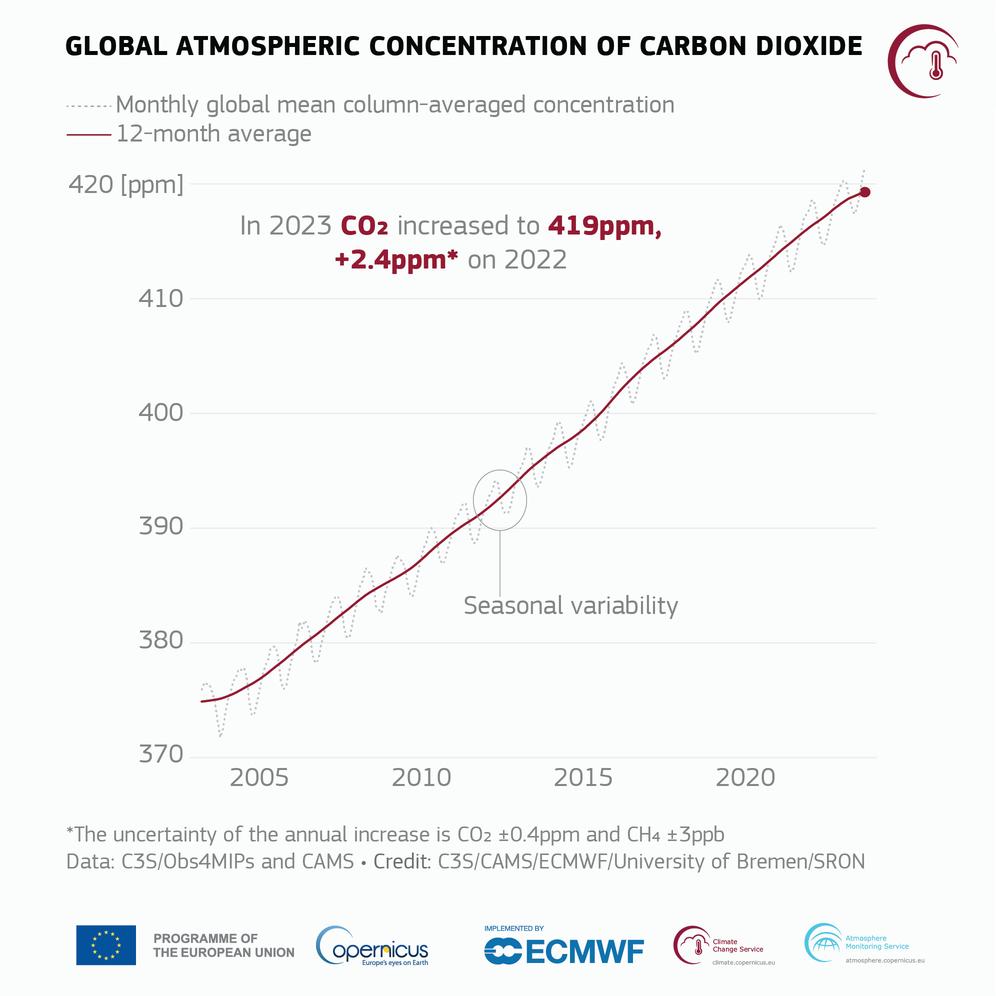2023 was the world’s hottest year on record, new study shows
2023 was the hottest year on record, with temperatures coming close to breaking the 2015 Paris Agreement’s target.

2023 was the hottest year on Earth since records began, according to the latest data.
The planetary temperature surged to an alarming 1.48C above the pre-industrial period (1850-1900), according to the 2023 annual climate summary conducted by the European Union’s Copernicus Climate Change Service (C3S),
2023 was also the first year that temperatures exceeded 1C higher than pre-industrial times, with two days in November hitting a record 2C above the pre-industrial baseline for the first time.
United Nations Secretary-General António Guterres sounded the alarm, citing data that indicated July 2023 was on track to be the warmest month recorded. Mr Guterres emphasised the severity of the situation, stating, “For vast parts of North America, Asia, Africa, and Europe – it is a cruel summer. For the entire planet, it is a disaster. And for scientists, it is unequivocal – humans are to blame.”

“All this is entirely consistent with predictions and repeated warnings. The only surprise is the speed of the change,” said Mr Guterres.
Global average temperature in 2023 exceeded the 2015 Paris Agreement’s target of limiting global warming to 1.5C. And while the world has not breached the target yet, C3S warns that temperatures surpassed the critical level on nearly half of the days in 2023, setting a concerning precedent.
The year unfolded as a relentless onslaught of record-breaking heat. Every month since June became the hottest on record, creating an unprecedented streak.
Prof Bill Collins, from the University of Reading, UK, told The Guardian: “It is a shock that 2023 unarguably smashed the global temperature record. More global warming is expected to cause even wetter winters in the UK and yet more flooding.”
According to the C3S report, the change in annual temperature from 2022 to 2023 was more significant than any change from one year to the next in the data record.

C3S Director Carlo Buontempo expressed the exceptional nature of 2023, describing it as “in a league of its own” compared to other warm years.
Despite climate targets set by governments and companies, CO2 emissions soared to record levels in 2023, with the concentration of CO2 in the atmosphere rising to its highest record level of 419 parts per million.
Hayley Fowler, Professor of Climate Change at Newcastle University, stressed the widening gap between political will and the urgency to reduce emissions does not match “the speed of change of extreme weather and warming.”

However, with 2023 temperatures receiving a boost from the El Nino weather phenomenon, which warms the surface waters in the eastern Pacific Ocean and contributes to higher global temperatures, scientists are still determining if the extreme heat in 2023 signals an acceleration in global warming.
C3S Deputy Director Samantha Burgess highlighted the need for more time and scientific studies to determine if there’s been a phase shift or tipping point.
Each increment of temperature increase worsens destructive weather events. In 2023, the heightened global temperatures intensified severe heatwaves, flooding and cyclones here in Australia. Around the world, China and Europe both experienced deadly heatwaves, Libya was inundated with floods, while Canada underwent its most severe wildfire season on record.
“Small changes in global temperatures have significant impacts on people and ecosystems,” emphasises Friederike Otto, a climate scientist with the World Weather Attribution research collaboration.
“Every tenth of a degree matters,” she added.





